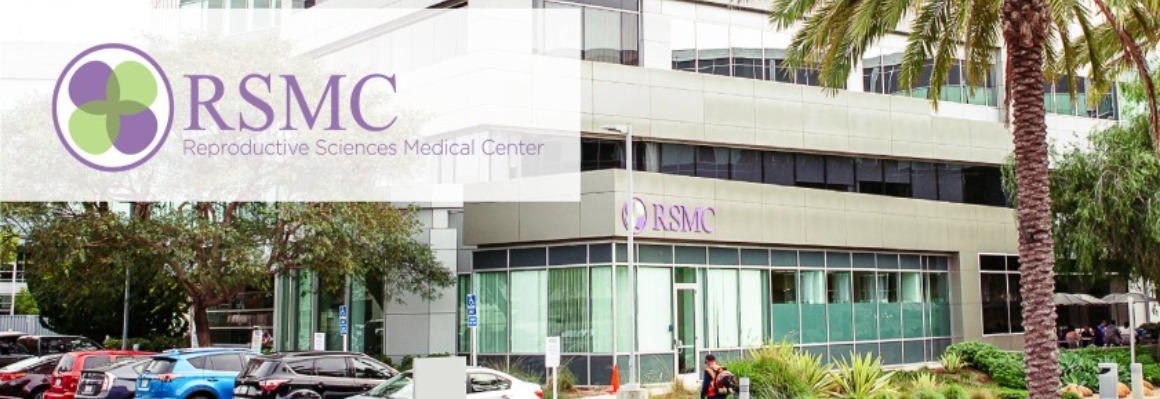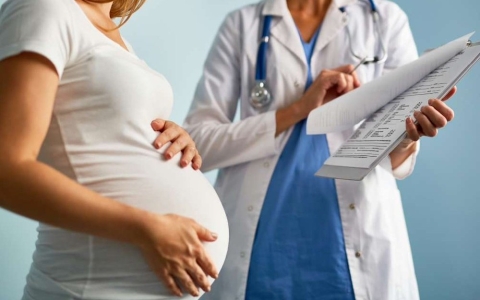What Age is Considered Advanced Maternal Age? The Impact of Advanced Maternal Age on Infertility.

Women aged 34 or above are considered advanced maternal age, and their fertility potential tends to decrease with age. The chances of premature birth, fetal abnormalities, and pregnancy complications also increase. It is recommended to consider in vitro fertilization (IVF) to reduce the risks associated with natural conception for older women and their babies. Even women aged 42 or above rarely use their own eggs for IVF due to the increased risk of chromosomal abnormalities associated with advanced age, unless they had preserved their eggs when they were younger to preserve their fertility opportunities.
Pregnancy Risks for Advanced Maternal Age:
1.Increased Risk of Premature Birth and Miscarriage:
As a woman's age increases, the quality of her chromosomes and eggs tends to decline, leading to an increased risk of miscarriage and premature birth. In severe cases, it can even result in stillbirth.
2.Susceptibility to Pregnancy Complications:
Pregnancy complications such as gestational hypertension, gestational diabetes, and preeclampsia are more likely to occur in older women due to the effects of pregnancy hormones. The older the woman, the more susceptible she becomes to these complications.
3.Increased Probability of Embryo Abnormalities:
Older women are more prone to conceiving embryos with genetic abnormalities, including Down syndrome or chromosomal abnormalities. It is advisable not to attempt natural conception without careful consideration. If pregnancy occurs, prenatal testing such as NIPT (Non-Invasive Prenatal Testing) and amniocentesis is recommended to assess the health of the fetus.
Suitable IVF Options for Advanced Maternal Age Women:
1.Surrogacy:
Apart from cases where women are not suitable for pregnancy due to medical conditions or assessed to have pregnancy-related risks, many older women opt for surrogacy to avoid risks and increase the success rate of IVF. If there are embryos or oocytes in Taiwan, they can be transported to RSMC Reproductive Center in the USA, avoiding the risks associated with older maternal age and increasing the success rate of IVF.
2.IVF Treatment:
The United States currently boasts the highest success rate for IVF, with RSMC ranking among the top centers. The success rate of IVF depends not only on the quality of oocytes or embryos but also significantly on the laboratory quality. RSMC's embryo laboratory in the USA is certified with the highest level of CPA accreditation, ensuring high fertilization rates, and uses PGS (Preimplantation Genetic Screening) to identify chromosomal abnormalities caused by advanced maternal age. This allows the selection of the highest-quality embryos, achieving a pregnancy rate of up to 80%. RSMC's IVF success rate exceeds 80%. Many older couples desire specific embryo gender due to family pressures. While Taiwan is limited by legal restrictions and cannot select embryo gender, the USA allows legal gender selection. Coupled with higher success rates than in Taiwan, many older couples come to RSMC Reproductive Center in the USA for IVF treatment.
3.Egg Donation IVF:
For older women who have lost ovarian function, have unsuitable oocytes, or have a low egg reserve, egg donation becomes the option. In Taiwan, artificial reproductive laws dictate that couples can only know the ethnicity, skin color, and blood type of the egg donor, maintaining anonymity. In the USA, egg recipients can see pictures of the egg donor as an adult, as well as details about their height, weight, education, interests, and even the health status of their direct blood relatives. RSMC Reproductive Center in the USA has an egg donation IVF success rate of up to 87%, mainly due to the mature and open medical environment and legal protection for patients during the treatment process.
Precautions for Pregnant Advanced Maternal Age Women:
1.Balanced Diet and Normal Sleep Schedule:
Maintain a balanced diet to ensure proper nutrition during pregnancy. If the body weight is too low, it can lead to poor embryo development or an increased risk of premature birth. On the other hand, being overweight can increase the risk of gestational diabetes for older pregnant women. Therefore, it is essential for advanced maternal age women to maintain a balanced diet, a regular sleep schedule, and adequate rest.
2.Avoid Smoking and Alcohol:
Pregnant advanced maternal age women should refrain from smoking and drinking alcohol. It is also essential to avoid secondhand smoke and exposure to other harmful substances to ensure healthy embryo development.
3.Avoid Sexual Intercourse and Strenuous Exercise:
After becoming pregnant, couples should avoid sexual intercourse and refrain from engaging in strenuous exercises to prevent the risk of miscarriage or premature birth. Advanced maternal age women should not overexert themselves in their work or daily life and should strive to maintain a positive and stable emotional state.
4.Regular Check-ups:
Preconception check-ups can assess whether the woman's body is suitable for pregnancy and detect any chronic diseases or issues with the uterus. After becoming pregnant, advanced maternal age women should undergo regular prenatal check-ups. Blood pressure should be monitored to prevent gestational hypertension. At around 10 weeks, they can consider Non-Invasive Prenatal Testing (NIPT), and at around 16 weeks, amniocentesis can be performed to check for chromosomal abnormalities in the fetus.

How does RSMC help Advanced maternal age mothers ?
RSMC Reproductive Science Medical Center is located in San Diego and Irvine, California, founded in 1995, with 28 years of extensive clinical experience in reproductive medicine and infertility treatment. Our center has a professionally accredited laboratory, meeting the highest CPA certification standards, ensuring the cultivation of excellent embryos. Over the past 28 years, we have achieved a success rate of over 80% for IVF (In Vitro Fertilization), and our egg donation IVF has an impressive pregnancy rate of over 87%. RSMC has its own egg and surrogate mother bank, making it the only medical institution in the USA with an elite egg bank and surrogate mother talent pool, managed by physicians, and with selection criteria stricter than FDA regulations. Additionally, professional lawyers assist in handling parental rights, providing aging couples who have struggled to conceive for years a chance to fulfill their dreams through legal egg donation and surrogacy in the USA.
Further reading: RSMC's In-House Egg and Surrogate Bank: Instant Pairing Without Waiting!
Other
-
2024/11/18ivf
What is a Uterine Polyp? Does It Affect Fertility?



